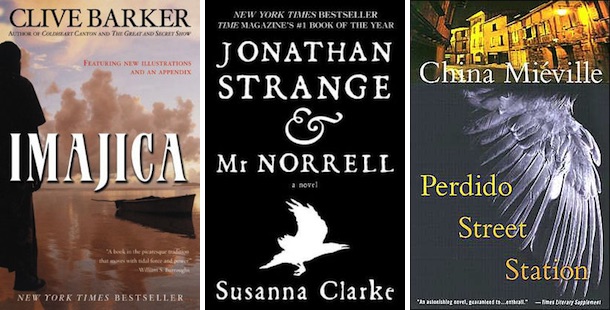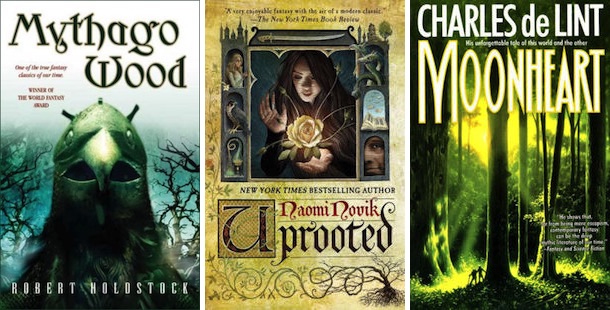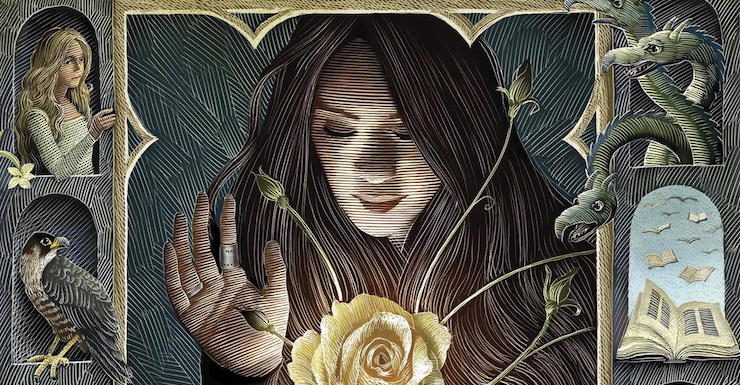There’s a certain satisfaction in picking up a fantasy novel and knowing it’s a standalone. For one, you won’t have to wait a year, or two, or even five before you find out what happens next. In that time you’ve invariably forgotten much of the first, or previous book anyway, so a lot of the time you have to reread to get up to speed. Also, you won’t end up picking up an interesting looking fantasy novel from the shelves, starting it, then realizing it’s actually book two of a trilogy, or book four in a ten book series.
With Blood of the Four, we wanted to build a big, epic world full of fascinating characters, and tell a story that comes to a definite end. The reader will hopefully end up satisfied, the story threads come together. Of course, that’s not to say there aren’t other stories that could be told about that vast world of Quandis…
We were partly inspired by other great standalone fantasy novels we’ve read, but because we read so broadly in so many different genres, when we discussed making this list, we also wanted to take a broad definition of fantasy. Here are just a small selection of our favorite fantastical epics, with a few words about why we think they work so well. We came up with the list together, then split them up, three a piece.
Tim Lebbon picks…

Imajica by Clive Barker
Weaveworld and The Great and Secret Show were classics, but for me Imajica is Barker’s fantasy novel (admittedly with some pretty dark horror elements) that works best. Perhaps part of that is nostalgia—I was reading this book whilst on holiday with my wife when we were very young—but there’s also an epic sense of scope and import to the book. It’s a triumph of imagination, a wide-reaching story that not only addresses questions of religion, sex, love and politics, but also makes the reader really think about why our world is as it is … and whether, perhaps, it might make more sense if it was meant to be part of other realms.
Jonathan Strange & Mr. Norrell by Susanna Clarke
Now this is an epic one. A fantasy or an alternate history, however you read it this is a beautiful, precise, exciting and thrilling novel of England and English magic. A novel so large that took so long to write naturally benefits from being standalone, and the story is a rich tapestry with many threads, winding their way through 800 pages, crossing and twisting as magic—real, and perhaps not so real—weaves its own hold over characters and readers alike. Strange and Norrell are very different men, with very different experiences of magic. Their stories are destined to clash, and the repercussions of such a butting of minds and magics echoes throughout the novel. With fine world-building and intricate historical detail (both real and not-so-real), perhaps the book’s greatest gift is the wonderful character writing told on such a wide scale. Brilliant.
Perdido Street Station by China Mieville
Edging just a little further from epic fantasy, perhaps, but for me this novel is a brilliant example of world-building. Stunning architecture, animal and human-like species, political intrigue, flora and fauna … and monsters. Mieville’s love of monsters is well documented, and in his fantastical city of New Crobuzon, and the wider world of Bas-Lag, he has ample opportunity to indulge his passion. It’s one of several stories set in that imaginary world, but it’s very much standalone. There’s a power to Mieville’s language that instils a real sense of wonder in his creations, and the novel is adept at holding up a mirror to our own world … bad aspects, as well as good.
Christopher Golden picks…

Mythago Wood by Robert Holdstock
It’s probably cheating, because Holdstock went on to write numerous other novels that are tied to this one, but Mythago Wood reads very much as if those expansions and further explorations were additions. Second thoughts. He finished this one and decided he had more to say—at least that’s how I’ve always viewed it. A beautiful journey and a fantastical mystery, this is The Lost City of Z, with every acre of forest peeling back centuries of ancestral memory and digging at the roots of folklore. A classic.
Uprooted by Naomi Novik
I had the pleasure of reading this one long before publication thanks to a blurb request from the publisher. While Novik’s much-beloved Temeraire series is a sprawling series, Uprooted is the perfect example of a standalone fantasy. A mysterious wizard selects one village girl every ten years to snatch away to his remote, lonely castle. There are echoes of Beauty and the Beast, and of Jonathan Harker from Dracula, as Agnieszka begins to unravel the story’s mysteries, but it’s when she journeys into the heart of the rot at the heart of the Wood that the deep dread of Novik’s tale blooms into a unique and beautiful epic.
Moonheart by Charles de Lint
Before we found our contemporary understanding of “urban fantasy” as a category, authors like Charles de Lint and Emma Bull invented it. Some of De Lint’s stories weave legend and folklore and quests and magic and crusades into a real world environment, while others are set in more traditional fantasy worlds. First published in 1984, Moonheart was a revelation to me, as it succeeded in merging the two and adding in the character depth, the friendship, the longing, and the humanity that are de Lint’s signatures. Wizards, cops, monsters, bikers, a familiar Welsh bard, and a massive, sprawling commune full of people who are both lost and found. Tamson House is waiting for you. Tell everyone there I said hello.
CHRISTOPHER GOLDEN is the New York Times bestselling author of such novels as Of Saints and Shadows, The Myth Hunters, Snowblind, Ararat, and Strangewood. With Mike Mignola, he co-created the comic book series Baltimore and Joe Golem: Occult Detective. He lives in Bradford, Massachusetts.
TIM LEBBON has written more than forty horror, dark fantasy, and tie-in novels, including The Silence, Relics, Kong: Skull Island, and the Noreela fantasy series. He’s also written hundreds of novellas and short stories, winning several prestigious awards, and has had his work optioned and made for the big screen. He lives in Monmouthshire, UK.










